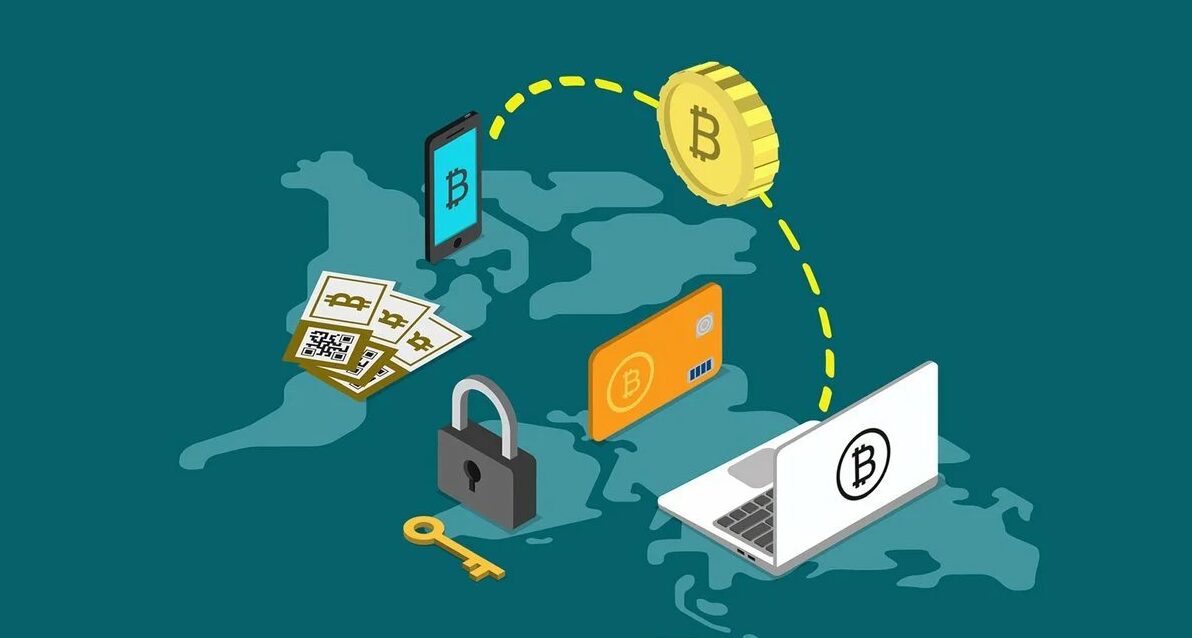The cryptocurrency landscape continues to evolve rapidly, making it crucial to identify the best Bitcoin exchange 2025 for your trading needs. With over 500 cryptocurrency exchanges operating globally, choosing the right platform can significantly impact your trading success and security. Whether you’re a beginner looking to make your first Bitcoin purchase or an experienced trader seeking advanced features.
Selecting the best Bitcoin exchange 2025 requires careful consideration of factors like security, fees, user experience, and regulatory compliance. This comprehensive guide will help you navigate through the top cryptocurrency exchanges, comparing their features, benefits, and potential drawbacks to ensure you make an informed decision for your Bitcoin trading journey.
What Makes the Best Bitcoin Exchange in 2025?
The cryptocurrency market has matured significantly, and the standards for what constitutes the best Bitcoin exchange 2025 have evolved accordingly. Today’s top exchanges must demonstrate exceptional security measures, competitive fee structures, regulatory compliance, and user-friendly interfaces.
Security Features That Matter
Security remains the paramount concern when evaluating Bitcoin exchanges. The best platforms implement multiple layers of protection including. Cold storage wallets that keep the majority of user funds offline, protecting them from potential cyber attacks. Two-factor authentication (2FA) should be mandatory, not optional. Advanced exchanges also employ biometric verification, IP whitelisting, and real-time fraud detection systems. Insurance coverage has become a standard feature among top-tier exchanges.
Leading platforms maintain insurance policies that protect user funds in case of security breaches or operational failures. This additional layer of protection provides peace of mind for traders storing significant amounts of Bitcoin. Regular security audits conducted by third-party cybersecurity firms help identify potential vulnerabilities before they can be exploited. The best exchanges are transparent about their security practices and regularly publish audit results.
Fee Structure Analysis
Understanding fee structures is crucial when selecting a Bitcoin exchange. The most common fee types include:
Trading fees vary significantly between platforms and often depend on your trading volume. Maker-taker fee models reward users who provide liquidity to the order book with lower fees while charging slightly higher fees to takers who remove liquidity.
Deposit and withdrawal fees can substantially impact your overall trading costs, especially for smaller transactions. Some exchanges offer free deposits for certain payment methods while charging fees for others. Hidden fees might include spread markups, conversion fees, or inactivity charges. Transparent exchanges clearly display all potential costs upfront, helping users make informed decisions about their trading activities.
Top Bitcoin Exchanges for 2025
Binance: The Global Leader
Binance continues to dominate the cryptocurrency exchange landscape with its comprehensive feature set and competitive fee structure. The platform offers spot trading, futures, options, and various other financial products. The exchange supports over 350 cryptocurrencies and provides advanced trading tools suitable for both beginners and professional traders.
Binance’s fee structure starts at 0.1% for both makers and takers, with significant discounts available for high-volume traders and BNB token holders. Security measures include SAFU (Secure Asset Fund for Users) insurance coverage, regular security audits, and advanced risk management systems. The platform has successfully handled several security challenges over the years, demonstrating its commitment to user protection.
Coinbase: Best for Beginners
Coinbase has established itself as the most user-friendly platform for cryptocurrency newcomers. The exchange offers both basic and advanced trading interfaces, allowing users to progress from simple purchases to sophisticated trading strategies. Regulatory compliance is a key strength of Coinbase, with proper licensing in multiple jurisdictions including the United States.
This regulatory oversight provides additional security assurances for users concerned about compliance issues. The platform’s educational resources, including Coinbase Earn, help users learn about different cryptocurrencies while earning small amounts of tokens. This educational approach makes Coinbase an excellent choice for those new to Bitcoin trading.
Kraken: Security-Focused Trading
Kraken has built a reputation as one of the most secure cryptocurrency exchanges in the industry. The platform has never experienced a major security breach, demonstrating its commitment to protecting user funds. Advanced trading features include margin trading, futures contracts, and staking services.
Professional traders appreciate Kraken’s robust API and advanced order types that enable sophisticated trading strategies. The exchange offers competitive fees, particularly for high-volume traders, and provides excellent customer support through multiple channels including live chat and phone support.
Comparing Exchange Features and Benefits

User Interface and Experience
Modern Bitcoin exchanges must balance functionality with usability. The best platforms offer intuitive interfaces that don’t overwhelm beginners while providing advanced features for experienced traders. Mobile applications have become essential, with many users preferring to trade on smartphones and tablets.
Top exchanges invest heavily in mobile app development, ensuring feature parity between web and mobile platforms. Customer support quality varies significantly between exchanges. The best platforms offer 24/7 support through multiple channels and maintain comprehensive help centers with detailed tutorials and troubleshooting guides.
Geographic Availability and Regulations
Regulatory compliance significantly impacts exchange availability in different regions. Users must ensure their chosen platform operates legally in their jurisdiction and complies with local regulations. KYC (Know Your Customer) and AML (Anti-Money Laundering) requirements have become standard across reputable exchanges.
While these processes may seem cumbersome, they provide important protections for both users and the broader cryptocurrency ecosystem. Tax reporting features help users maintain compliance with local tax obligations. Advanced platforms provide detailed transaction histories and integration with popular tax software solutions.
Advanced Trading Features to Consider
Order Types and Trading Tools
Professional traders require sophisticated order types beyond basic market and limit orders. Advanced platforms offer stop-loss orders, take-profit orders, and trailing stops that help manage risk and automate trading strategies. Technical analysis tools, including candlestick charts, moving averages and various indicators.
Enable traders to make informed decisions based on market data. The best exchanges either provide built-in analysis tools or integrate with popular trading platforms. API access allows algorithmic traders to implement automated strategies and connect third-party trading bots. Robust APIs with comprehensive documentation attract professional traders and institutional clients.
Liquidity and Market Depth
High liquidity ensures that traders can execute large orders without significantly impacting market prices. The best Bitcoin exchanges maintain deep order books and attract market makers who provide continuous liquidity.
Spread analysis reveals the difference between bid and ask prices, directly impacting trading costs. Exchanges with tighter spreads offer better value for traders, especially those executing frequent transactions. Market depth charts display the volume of buy and sell orders at different price levels, helping traders understand market sentiment and potential price movements.
Security Best Practices for Bitcoin Trading
Personal Security Measures
While exchanges implement various security measures, users must also take responsibility for protecting their accounts. Strong, unique passwords combined with two-factor authentication provide the first line of defense against unauthorized access.
Hardware wallets offer the highest level of security for long-term Bitcoin storage. While convenient for trading, keeping large amounts of Bitcoin on exchanges increases exposure to potential security risks. Regular security audits of personal devices, including antivirus scans and software updates, help prevent malware that could compromise trading accounts.
Exchange Security Standards
The best exchanges undergo regular third-party security audits and publish results transparently. These audits identify potential vulnerabilities and verify the implementation of security best practices.
Insurance policies protect user funds in case of exchange failures or security breaches. While not all exchanges offer insurance, this feature has become increasingly common among top-tier platforms. Emergency procedures, including trading halts and fund freezing capabilities, enable exchanges to respond quickly to security threats and minimize potential damage.
Fee Optimization Strategies
Understanding Fee Structures
Trading fees represent the most significant cost for active traders. Understanding how different fee structures work helps optimize trading strategies and minimize costs. Volume-based fee tiers reward high-volume traders with reduced rates. Traders approaching higher volume thresholds might benefit from concentrating.
Trading activity on a single platform to achieve better rates. Native token discounts offered by many exchanges can significantly reduce trading costs. However, holding exchange tokens introduces additional risk that must be weighed against potential savings.
Cost-Effective Trading Approaches
Market making strategies can help traders earn rebates rather than pay fees. By placing limit orders that provide liquidity to the order book, traders may receive small payments rather than paying trading fees. Timing withdrawals to minimize network congestion can reduce transaction costs.
Bitcoin network fees vary based on demand, and strategic timing can result in significant savings for large withdrawals. Batch transactions allow users to combine multiple smaller trades into fewer, larger transactions, reducing overall fee impact while maintaining desired market exposure.
Regulatory Landscape and Compliance

Global Regulatory Developments
Cryptocurrency regulation continues evolving worldwide, with different countries adopting varying approaches to digital asset oversight. The best exchanges proactively adapt to regulatory changes and maintain compliance across multiple jurisdictions. Licensing requirements ensure that exchanges operate under proper oversight and maintain adequate financial reserves.
Licensed exchanges typically offer greater security assurances and legal protections for users. Tax reporting obligations vary by jurisdiction, but most developed countries now require cryptocurrency transactions to be reported for tax purposes. Leading exchanges provide tools and reports that simplify tax compliance for users.
Compliance Benefits for Users
Regulated exchanges often provide stronger consumer protections, including dispute resolution mechanisms and deposit insurance. These protections can be valuable for users trading significant amounts or storing funds on exchanges.
Anti-money laundering (AML) measures help create a safer trading environment by preventing illicit activities. While KYC requirements may seem inconvenient, they contribute to the overall legitimacy and safety of the cryptocurrency ecosystem. Legal recourse options available through regulated exchanges provide additional security for users in case of disputes or operational issues.
Future Trends in Bitcoin Exchanges
Technological Innovations
Decentralized exchange (DEX) integration allows traditional centralized exchanges to offer DEX-like features while maintaining their security and user experience advantages. This hybrid approach may become increasingly common. Lightning Network integration enables faster and cheaper Bitcoin transactions.
Improving the overall user experience for smaller transactions and frequent traders. Artificial intelligence applications in fraud detection, market analysis, and customer support continue improving exchange operations and user experiences.
Market Evolution
Institutional adoption drives demand for sophisticated trading tools and higher security standards. Exchanges catering to institutional clients often lead innovation in these areas. Staking and DeFi integration provide additional revenue opportunities for exchange users, with platforms increasingly offering these services alongside traditional trading. Global expansion requires exchanges to navigate complex regulatory environments while maintaining consistent service quality across different markets.
Conclusion
Selecting the best Bitcoin exchange 2025 requires careful evaluation of your specific needs, risk tolerance, and trading goals. While established platforms like Binance, Coinbase and Kraken continue dominating the market, newer exchanges offer innovative features that may better suit certain users.
Security should remain your top priority when choosing any cryptocurrency exchange. Ensure your selected platform implements robust security measures, maintains proper insurance coverage and demonstrates transparency in their operations.
Load more: Best Bitcoin Mining Profitability Calculators for 2025 ROI




